Ribes
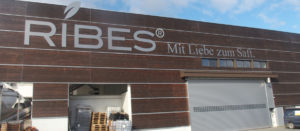
More than 25 years of organic blackcurrant growing and marketing: Ribes is unique. Its success comes from continuous investment and renewal, good ideas and perseverance of Gudrun and Franz Schriebl, the founders of Ribes.
We have met them in the framework of an IBA Executive meeting in March 2020.
Growing and marketing blackcurrants: here comes “RIBES“!
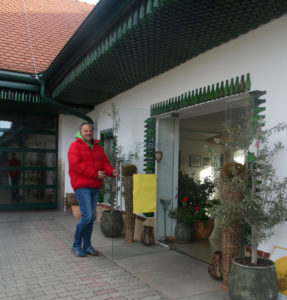
Growing blackcurrants and aronia, regional production and marketing of their own range of products – this is Ribes. Some of our readers may already know Franz and Gudrun Schriebl. They usually attend our international conferences – but may be seen as part of the German delegation. Quite normal, as they speak the same language. Most of the times, the Schriebls are the only Austrian growers to attend our conferences. While the Austrian blackcurrant production has been declining dramatically over the past twenty years, Gudrun and Franz decided not to give up. Today, they have found their own place in the market.
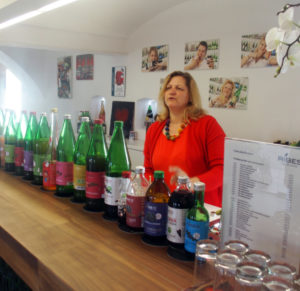
IBA Executive meets RIBES
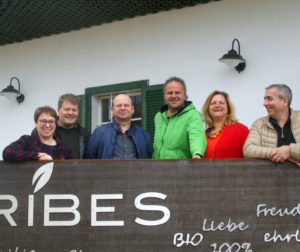
Ribes is the name of the Schriebls’ family business. The choice of the name was simple: they grew blackcurrants (Ribes nigrum), and they started their product range with blackcurrant products. The couple works together with their son Bernhard. Apart from themselves, only a part time employee for the farm shop and some helpers for bottling during the season work for Ribes.
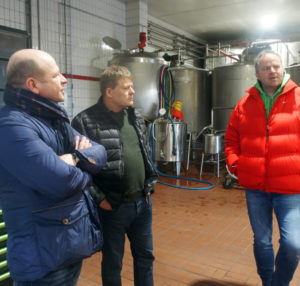
A blackcurrant story from Styria
Gudrun and Franz Schriebl’s farm dates back to 1960. Already in 1990, they started producing their own range of products and turned organic in 1993. “Styria is very hilly, and the growing conditions are not easy. We could not compete with regions where the geographic conditions are much more positive. This is how we decided to start our own production of fruit juices”, explains Franz Schriebl.
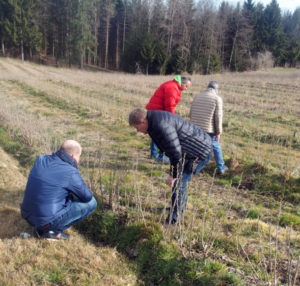
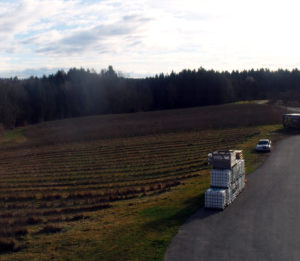
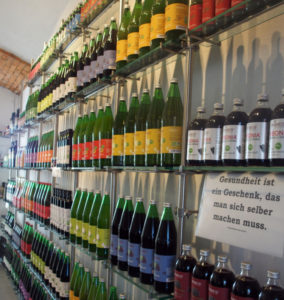
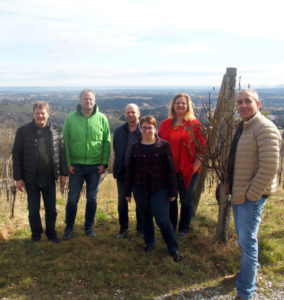
The Schriebls grow their own blackcurrants (mainly variety Tisel, which is the best choice in this area) and aronia. But they also buy blackcurrants from other growers in the same area, together with apples or pears. “We don’t concentrate any more on growing. In fact, it takes too much time for the three of us, and our focus today is clearly on marketing our products”, Gudrun explains.
Their market is mainly local: restaurants and hotels, local supermarkets and a farm shop for direct sales. They produce still and sparkling products in glass bottles.
Challenges in organic blackcurrant growing
“For the agricultural aspects, we do what we can – but it’s not enough”, Gudrun explains. She looks embarrassed while the IBA Executive has a look at her plantation. All those who have already tried know that organic blackcurrant growing is a tough job. Weed control is the biggest challenge, very time consuming and frustrating.
“We have planted horse beans between the rows to increase the amount of nitrogen in the soil. Between the plants, we try to keep control over the weed with Chickweed in spring and Galinsoga in late summer.
“We use a Greenmaster at least four times a year for doing the weeding”, says Franz. “Of course, we should do more to increase the yield, but it’s impossible, we are not enough people. Therefore, we keep doing what we can to secure a part of our juice production and have control over the quality. But for another part of the fruits, we prefer buying them from other growers in the region.”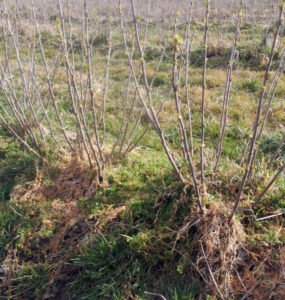
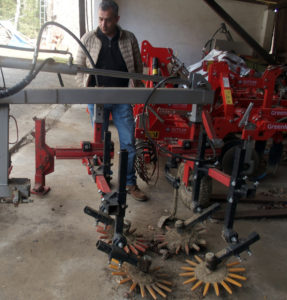
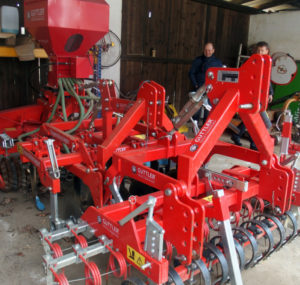
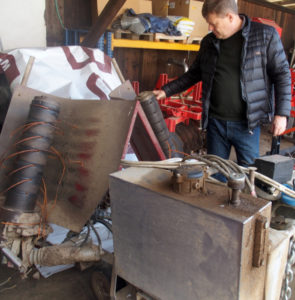
Organic blackcurrant juice and more
The juice production is the main part of Ribes turnover. They only produce NFC juices – and only organic. The pomaces that are left from the pressing process are dried, crushed and sold for teas and more.
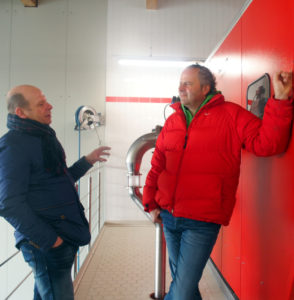
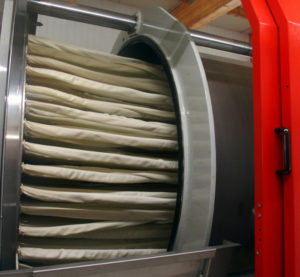
The Schriebls are proud of their juice production area. Sophisticated fruit presses with an extraction capacity of 80-90% can press between 700 and 800 tonnes of apples per year. Blackcurrants and aronia represent less. The produce goes into glass bottles only – a trend everywhere in Austria today.
Some twenty years ago, glass bottles were the new “old-fashioned” way of packing fruit juice. Today, the one-liter-bottles for juices are “Mehrwegflaschen” – bottles that can be used several times. As they are the same for all the producers, the consumer can buy them anywhere from anyone, and hand them back anywhere to anyone with a pawn system.
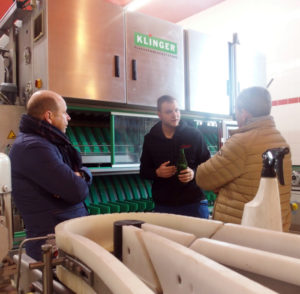
“Our transforming capacity is of 200 tonnes per day – or 60.000 bottles per day. We also sell juice to Agrana“, mentions Bernhard Schriebl, who graduated as a fruit juice maker a few years ago and is a specialist in this field.
Franz and Gudrun Schriebl are independent from the Austrian cooperative StBoG, as they use their whole production for themselves.
And as we could see, Ribes represents another prosperous way of marketing blackcurrants in Austria – and another success story of grower / producers in Europe. The trend to local production and consumption is still increasing and promising for the future of Ribes.